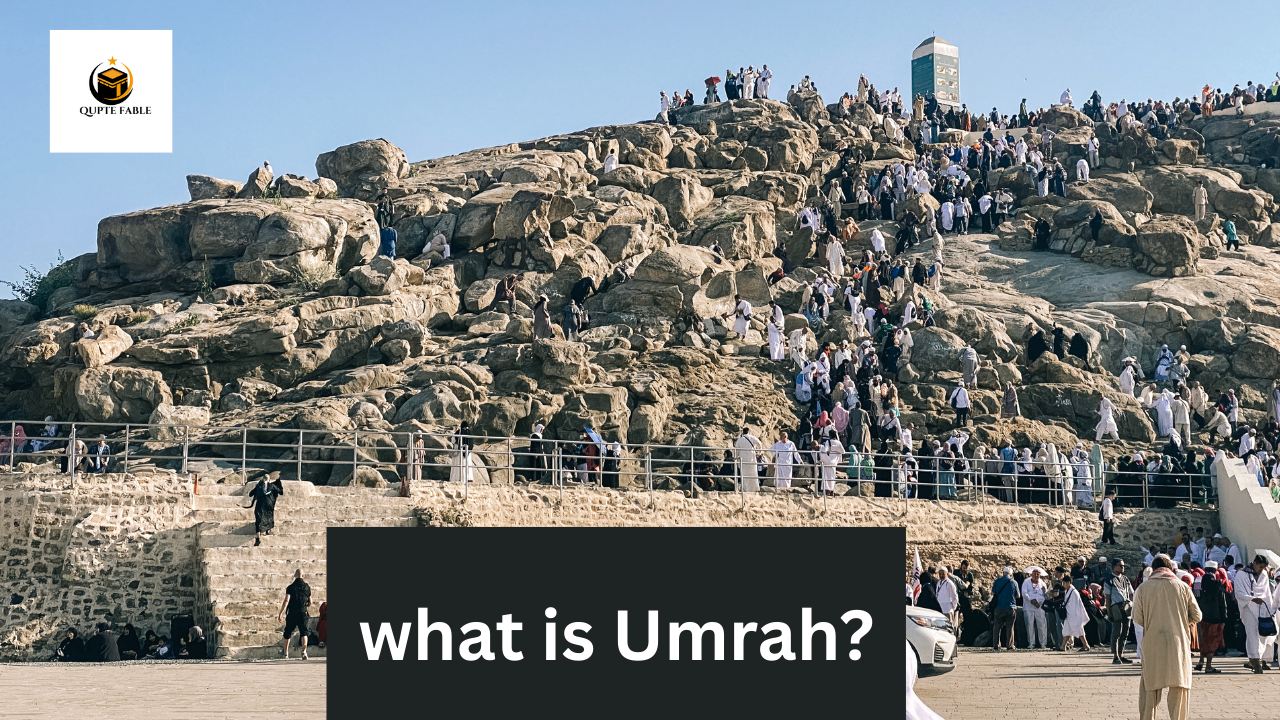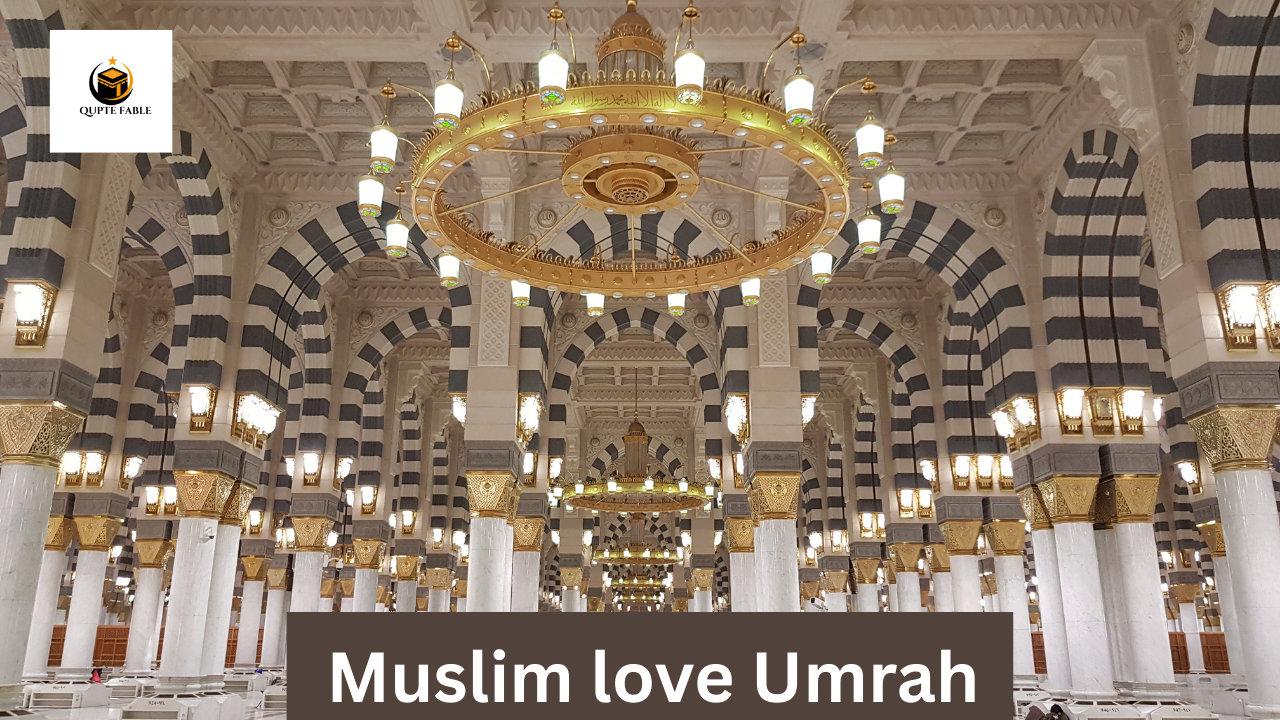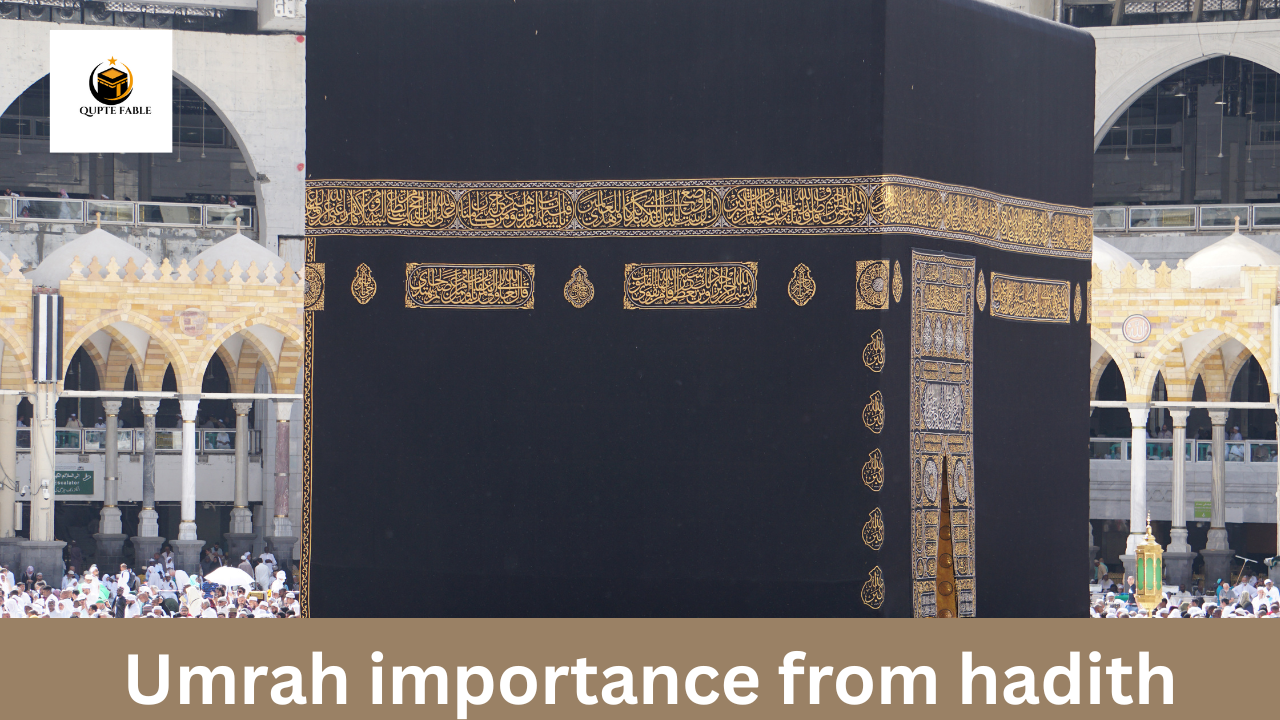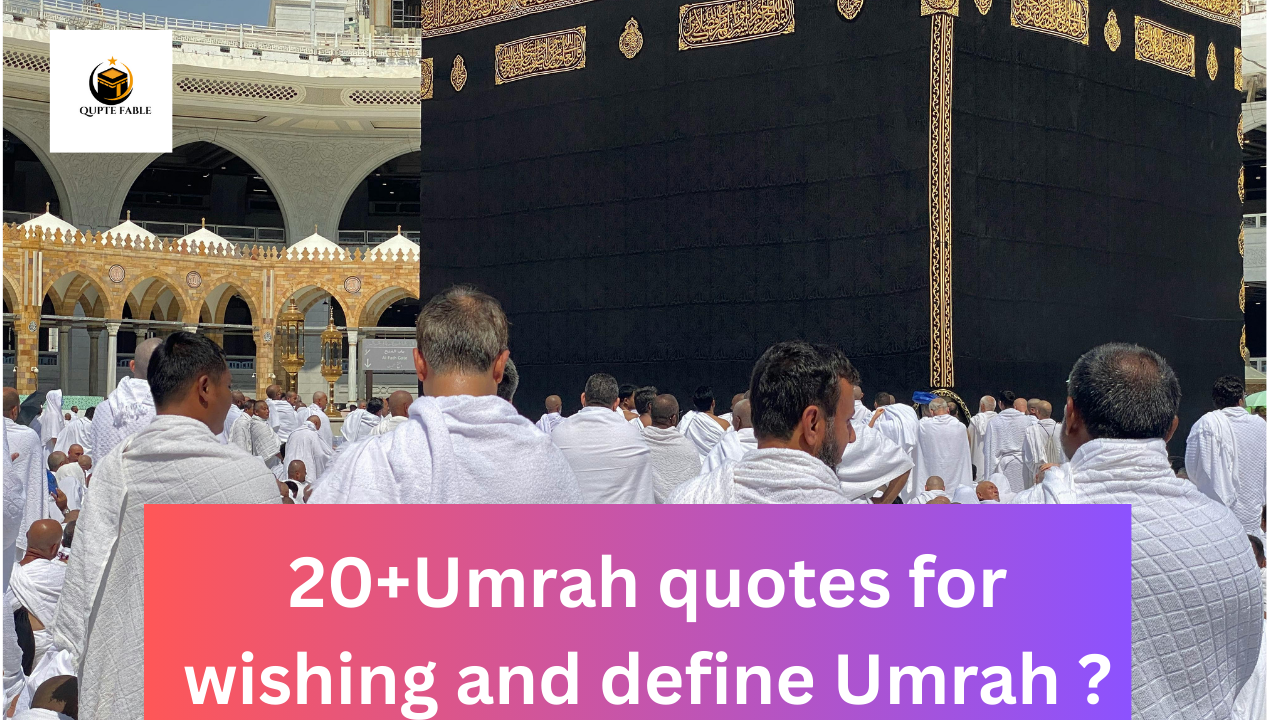Umrah, often referred to as the ‘lesser pilgrimage’ or ‘minor pilgrimage’, is a sacred Islamic rite performed by Muslims in the holy city of Makkah, Saudi Arabia. Unlike Hajj, which is obligatory and has specific dates, Umrah is a voluntary act of worship that can be undertaken at any time of the year. The word “Umrah” itself is derived from the Arabic root meaning “to visit a populated place.” In the Islamic context, it signifies visiting the Holy Kaaba, the House of Allah, and performing a set of devotional rituals. These rituals are deeply symbolic, representing themes of unity, sacrifice, and utter submission to the will of God. While not mandatory, it is considered a highly meritorious act that brings a Muslim closer to Allah, purifies the soul, and offers a chance for profound spiritual renewal and the erasure of past sins.
The performance of Umrah involves a series of steps that every pilgrim must follow. It begins with entering a state of ritual purity known as Ihram from designated locations (Miqat). This state involves wearing specific simple garments—two white, unsewn cloths for men and modest dress for women—and adhering to certain prohibitions to cultivate a focus on spirituality and equality. The core rites include performing Tawaf, which is circumambulating the Kaaba seven times in a counter-clockwise direction, and Sa’i, which is walking briskly seven times between the hills of Safa and Marwah. The pilgrimage concludes with the cutting or shaving of a portion of the hair (Halq or Taqsir), symbolizing a rebirth and the shedding of worldly attachments. Ultimately, Umrah is a powerful spiritual journey that detaches a believer from material concerns and allows for a focused devotion to Allah.

what is Umrah?
To understand what Umrah is, one must look beyond its physical actions and into its spiritual essence. It is a profound act of worship that embodies a Muslim’s love, devotion, and yearning to stand before their Creator. It is a personal conversation with Allah, an opportunity to beseech Him for forgiveness, mercy, and guidance in the most sacred of spaces. The journey itself is a metaphor for the soul’s return to its divine source, leaving behind all markers of status, wealth, and pride in the simple attire of Ihram. Every step taken during Tawaf and every pace during Sa’i is a step toward spiritual cleansing and a stronger, more resilient faith.
Physically, Umrah is a defined set of rituals. However, spiritually, it is an indescribable experience of peace and connection. Pilgrims often describe an overwhelming sense of awe and humility upon seeing the Kaaba for the first time, a structure towards which they have prayed five times a day their entire lives. The sight of millions of believers from every corner of the globe, united in purpose and dress, chanting the same prayers, is a powerful manifestation of the global Muslim Ummah. It is a living testament to the Islamic principles of monotheism, unity, and equality. Therefore, Umrah is not just a trip; it is a transformative spiritual expedition that rejuvenates the heart, mends the spirit, and reinforces a Muslim’s purpose in life: to worship Allah alone.
why umrah important for muslim
The importance of Umrah for a Muslim is multifaceted, encompassing spiritual, personal, and communal dimensions. Primarily, it is a powerful means of seeking Allah’s forgiveness and mercy. Islamic teachings promise that an accepted Umrah serves as an expiation for sins committed prior to it, offering the believer a clean slate and a chance for a spiritual rebirth. This purification of the soul is a central objective of the pilgrimage, allowing Muslims to return to their daily lives with a renewed sense of faith, purpose, and moral clarity. The journey provides a unique environment for self-reflection, away from the distractions and temptations of worldly life, enabling a deep assessment of one’s life and a reorientation towards righteousness.
Furthermore, Umrah is immensely important for the strengthening of faith (Iman). Being in the holy sanctuary, witnessing the grandeur of Allah’s house, and following in the footsteps of Prophets Ibrahim and Muhammad (peace be upon them) creates an unparalleled connection to Islamic history and faith. It makes the tenets of Islam tangibly real. The physical exertion involved in the rites—the walking, the praying, the patience required in large crowds—also serves as a test of devotion and a means to develop patience, humility, and gratitude. For many, it is the fulfillment of a lifelong dream, a journey that answers a deep, spiritual longing to visit the spiritual center of the Islamic world. The blessings (Barakah) sought from this journey are believed to extend to the pilgrim’s life, family, and future endeavors.
what is the history of umrah ?
The history of Umrah is intrinsically linked to the history of the Kaaba itself and the stories of the Prophets. According to Islamic belief, the foundations of the Kaaba were first laid by Prophet Ibrahim (Abraham) and his son Ismail (Ishmael) (peace be upon them) by divine command. It was established as the first house of worship dedicated to the belief in the One God. The rites of Umrah commemorate the trials and unwavering faith of Prophet Ibrahim’s family, particularly his wife Hajar (Hagar). The ritual of Sa’i, which involves walking between the hills of Safa and Marwah, reenacts Hajar’s desperate search for water for her infant son Ismail. Her frantic running and her ultimate trust in God were rewarded with the miracle of the Zamzam well, which sprung forth at Ismail’s feet.
The practice of Umrah was continued by the Arab tribes after the time of Ibrahim, but over centuries, it became corrupted with polytheism and idolatry. The pivotal moment in its history came with the advent of Prophet Muhammad (PBUH). After the Treaty of Hudaybiyyah in 628 CE, the Prophet (PBUH) and his companions were finally able to perform Umrah after years of being prevented by the Quraysh tribe. This first pilgrimage, known as the ‘Umrat al-Qada’, was a watershed moment that demonstrated the peaceful principles of Islam and eventually led to the conquest of Makkah. Prophet Muhammad (PBUH) subsequently performed Umrah on other occasions, reviving and reinstating the pure monotheistic rites established by Prophet Ibrahim. Thus, every Umrah performed today is a revival of this ancient legacy of pure faith.

Muslim love Umrah
The love Muslims hold for Umrah is profound and deeply emotional, stemming from a place of spiritual yearning and devotion. It is a love born from the belief that embarking on this journey is answering a direct call from Allah. The chance to visit His house, the Kaaba, is seen as an immense honor and a privilege that ignites a heartful of anticipation and joy. The very thought of standing where the Prophets stood, performing the acts of worship they performed, creates a powerful connection to faith that is both humbling and exhilarating. This love is often described as a pull on the heartstrings, a holy longing that persists until the journey is fulfilled.
This affection is further amplified by the firsthand accounts of returning pilgrims who speak of an experience that is impossible to fully capture in words. They describe an overwhelming sense of peace (Sakinah) that descends upon them upon entering the Masjid al-Haram, the awe-inspiring sight of the Kaaba, and the unique feeling of community among millions of diverse believers united in a single purpose. The opportunity to make heartfelt supplications (du’a) in a place where prayers are believed to be readily accepted is a cherished aspect. The love for Umrah is, therefore, not just for the journey itself, but for the spiritual transformation it promises—the chance to return purified, forgiven, and reborn with a heart full of faith and gratitude.
give me 20 umrah wishing quotes
- May Allah accept your Umrah, forgive your sins, and grant you a safe journey filled with blessings and peace. Ameen.
- As you embark on this sacred journey, may your steps be blessed and your prayers answered at the House of Allah.
- May your pilgrimage be accepted, your heart be filled with serenity, and your faith be strengthened beyond measure. Ameen.
- Wishing you a spiritually uplifting Umrah. May you return home purified, renewed, and enveloped in Allah’s infinite mercy.
- May Allah ease your journey, accept your worship, and grant you the highest ranks in Jannah. Have a blessed Umrah.
- May your journey to the Holy Land be safe, your worship accepted, and your heart forever connected to the Kaaba.
- As you perform Tawaf and Sa’i, may Allah wipe away your worries and fill your life with endless blessings and joy.
- Thinking of you as you embark on this beautiful spiritual journey. May Allah accept all your prayers and du’as.
- May the blessings of your Umrah extend to your family and loved ones, and may you return as a better Muslim.
- Wishing you a journey of a lifetime. May you find the peace and closeness to Allah that your soul seeks.
- May your presence in the holy sanctuary be a means for you to attain Allah’s pleasure and forgiveness. Ameen.
- Go in peace, perform your rites with love, and return with a heart lighter than ever before. Umrah Mubarak!
- May every circle around the Kaaba bring you closer to Jannah and every step between Safa and Marwah erase a sin.
- Sending prayers that your Umrah is a source of immense spiritual joy and a means of great reward for you.
- May Allah welcome you as His guest, grant you ease, and answer every single one of your heartfelt prayers.
- May this sacred pilgrimage strengthen your Iman and be a shining light guiding you for the rest of your life.
- As you wear the Ihram, may you shed your sins and prepare to be embraced by Allah’s boundless mercy.
- May your journey be safe, your worship accepted, and your return be to a life filled with faith and happiness.
- You are in our prayers. May Allah make this Umrah easy for you and a means of your salvation. Ameen.
- May the spiritual high of your Umrah remain with you always, protecting and guiding you through life.

umrah importance from quran
The Holy Quran, the divine scripture of Islam, underscores the importance of Umrah both directly and indirectly through its verses. One of the most direct references is found in Surah Al-Baqarah (2:196): “And complete the Hajj and Umrah for Allah…” This explicit command establishes both pilgrimages as acts of worship to be fulfilled for the sake of Allah alone, with sincerity and completeness. The verse goes on to outline certain rulings, further cementing its significance in Islamic law. Another pivotal verse highlighting a core ritual of Umrah is in Surah Al-Baqarah (2:158): “Indeed, as-Safa and al-Marwah are among the symbols of Allah. So whoever makes Hajj or Umrah to the House – there is no blame upon him for walking between them…” This verse confirms that the Sa’i is an integral and sanctioned part of the pilgrimage.
The Quran also emphasizes the sanctity of the Masjid al-Haram, the very destination of Umrah. In Surah Al-Ma’idah (5:97), Allah says, ” Allah has made the Kaaba, the Sacred House, standing for the people and [has sanctified] the sacred months…” The immense status of this location directly translates to the significance of the journey undertaken to visit it. Furthermore, numerous verses speak of the virtue of visiting places of worship for the remembrance of Allah. The spiritual state of the pilgrim is also addressed, with verses encouraging purity, prayer, and devotion. Thus, the Quran provides a strong foundation for the importance of Umrah, from the legitimacy of its rites to the sanctity of its destination and the required mindset of the believer.
umrah importance from hadith
The Sunnah and teachings of Prophet Muhammad (PBUH) elaborate extensively on the immense importance and virtues of performing Umrah. Numerous authentic hadiths highlight the spiritual benefits and rewards that await the pilgrim. In a famous narration reported in Sahih al-Bukhari and Sahih Muslim, the Prophet (PBUH) said, “From one Umrah to the next is an expiation for the sins committed between them, and the reward for an accepted Hajj is nothing but Paradise.” This hadith provides a powerful incentive, promising the eradication of sins for the one who performs Umrah with sincerity. Another compelling hadith found in Sunan Ibn Majah states, “The performers of Hajj and Umrah are a delegation to Allah. If they call upon Him, He answers them, and if they seek His forgiveness, He forgives them.” This frames the pilgrims as honored guests of Allah whose supplications are in a state of being readily accepted.
The Prophet (PBUH) also connected Umrah to both spiritual and worldly provisions. In a hadith recorded by At-Tirmidhi, he said, “Perform Hajj and Umrah consecutively; for they remove poverty and sins as the furnace removes impurity from iron.” This illustrates the comprehensive cleansing power of these pilgrimages, purifying the soul from sin and the life from financial hardship. Furthermore, the Prophet (PBUH) himself performed multiple Umrahs, demonstrating its high status through his actions. His detailed instructions on how to perform the rites form the basis of its practice today, making it a living Sunnah. These hadiths collectively establish Umrah as a profoundly meritorious act that brings a believer closer to Allah, earns divine forgiveness, and yields tremendous rewards in this life and the hereafter.
Conclusion:
, Umrah stands as a profound spiritual gift in Islam, offering every Muslim the opportunity to embark on a transformative journey of faith. It is more than a set of rituals; it is a sacred pilgrimage that connects the believer to a rich history of prophets, purifies the soul from past transgressions, and reinforces the core principles of monotheism, humility, and unity. The overwhelming love Muslims hold for this journey stems from the unparalleled peace and divine connection experienced at Allah’s sacred House. While it may be a voluntary act of worship, its immense rewards, as highlighted in the Quran and Sunnah, make it a cherished aspiration for millions. May all those who are called to undertake this blessed journey be granted the ability to do so and may they return with hearts renewed, forgiven, and overflowing with faith.
please read the related post:Short Prayer for Healing and Recovery for Someone

